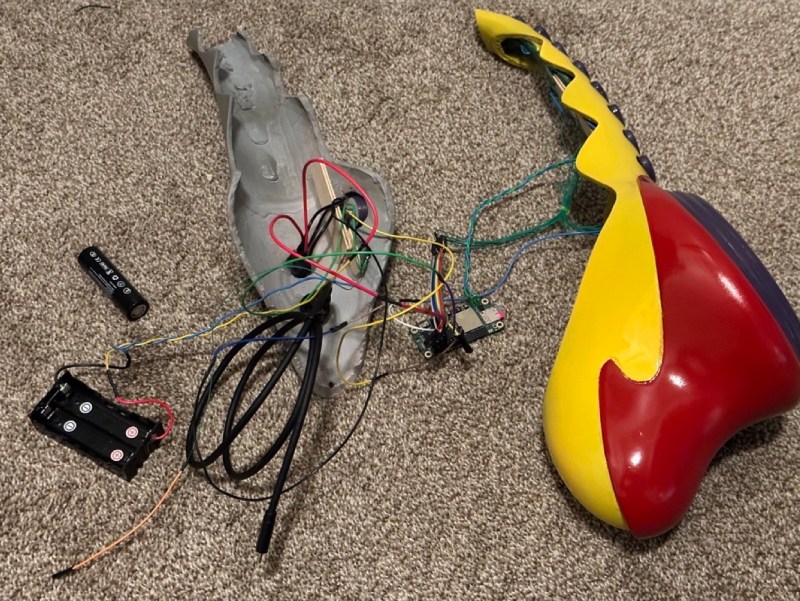
Most parents have heard a familiar story. Their lovely child comes up, having seen a celebrity rocking out with a funny $20 toy from the 80s, and asks for it. Of course, you reply, it’s just 20 dollars. However, a quick scan through eBay reveals that everyone else’s kid has also been asking for this obscure toy for a school event, which now costs around $700. [Ben] found himself in that exact position and made a crucial off-hand comment, “I bet I could make one of those.” That was how his hectic journey into the world of toy reproduction began.
All [Ben] had for reference when recreating a Sax-A-Boom were pictures and sound clips. Modeling complex sweeping shapes in CAD is difficult, and [Ben] commissioned a 3d model from a professional on Fiverr. [Ben] broke down the model into printable sections and tweaked it to account for buttons. After a concerning amount of putty, wet sanding, and elbow grease, [Ben] had a decently smooth body for an instrument. The device’s guts is an ESP32-based board called Sonatino, built around music generation. The music samples came from a virtual instrument clone on GitHub and loaded onto an SD card.
Time pressure crept in towards the end, and [Ben] had to go for some dirty solution that he would have preferred (popsicle sticks and epoxy for button mounting). Yes, there were some gaps and paint flaws, but ultimately [Ben’s] son rocked the school presentation. It’s a beautiful journey through creating something with a high level of finish on a limited timescale.
Perhaps future versions of the Sax-A-Boom can take it further by adding a breath sensor, like this 3d printed MIDI instrument.
0 Commentaires